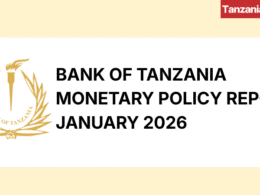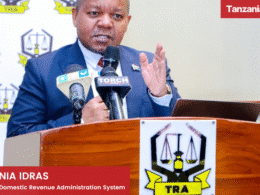The fourth review of the International Monetary Fund (IMF) program in Tanzania concluded that the country’s macroeconomic performances remain strong.
The conclusion was made by the Executive Board of the IMF on July 18th 2016 after the review of the Policy Support Instrument (PSI) for Tanzania.
The PSI helps low-income countries to design effective economic plans that once approved by the IMF, are addressed to international donors, multilateral development banks, and foreign markets.
“Tanzania’s macroeconomic performance has been strong under the PSI. Growth has remained close to 7% and inflation is moderate. Most quantitative program targets for end-2015 were met […],” said Mr. Min Zhu, IMF’s Deputy Managing Director and Acting Chair.
The favorable macroeconomic outlook is supported by Tanzania’s development agenda. However, the country’s authorities need to ensure that spending does not exceed available resources.
For this, careful prioritization and implementation of expenditures under the 2016–2017 budget of Tanzania will be required, according to Min Zhu.
“Vigorous reforms will be required to foster further structural transformation of the economy. The authorities’ focus on creating a better environment for business and job creation is welcome […]. Improving the financial sustainability of the public electricity utility, TANESCO, is critical for the development of the [Tanzanian] energy sector. Tanzania could also benefit from the completion of the East African Community common market,” he added.
Tanzania Macroeconomic Performances
Tanzania’s GDP grew by 7% in 2015, with activity particularly strong in the construction, communication, finance, and transportation sectors, the IMF press release indicates.
Inflation in Tanzania remained in single digits throughout 2015, averaging 5.6%, close to the authorities’ target of 5%.
The current account deficit declined from 10.7% of GDP in 2013–2014 to a projected 8.6% in 2015–2016, mainly due to lower oil prices.
The banking system appears sound overall, but there is wide variation within the system, according to the IMF.











